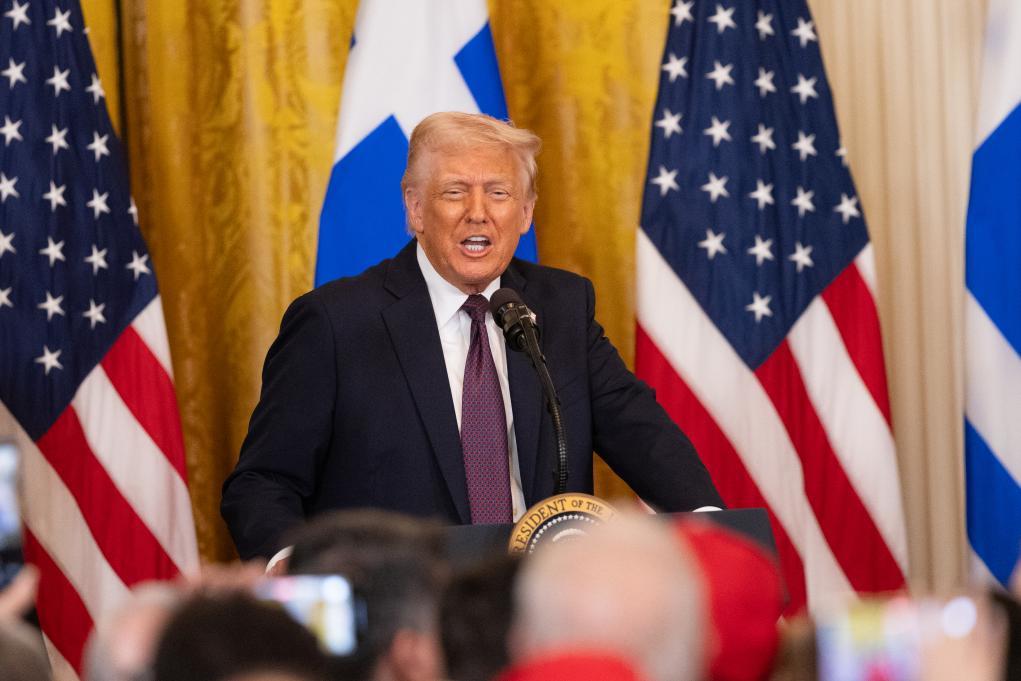
Recently, the European Commission Commissioner Sefjovic announced that the EU will implement the first round of countermeasures against the United States on April 15, and plans to launch the second round of measures on May 15. The move was a direct response to recent US tariffs, with the EU saying it would "use all trade defence tools" to protect its economic interests.
The European Commission has proposed to member states to impose 25% tariffs on some US imports in response to US restrictions on steel and aluminium products. Sefchovic stressed that the EU always prefers to resolve trade disputes through dialogue, but the US tariff policy has seriously damaged the interests of EU companies and consumers. He made it clear that the EU would not adjust its value-added tax system under US pressure, and pointed out that the Trump administration's "reciprocal tariffs" policy is not in line with fair trade principles.
Global stock markets have experienced a major sell-off amid growing fears that US tariffs could trigger a global recession. The Asia-Pacific market bore the brunt, with the stock markets of Japan, South Korea, Singapore, Australia and many other countries recording the largest one-day drop not seen in many years, and the South Korean stock market even triggered a "temporary suspension" mechanism. European markets were also hit hard, with all three major indexes down. London's FTSE 100 index fell 4.38 percent, France's CAC40 index fell 4.78 percent, and Germany's DAX index fell 4.13 percent in Frankfurt. On Wall Street, the S&P 500 briefly fell into bear market territory, while the Nasdaq fell nearly 4 percent in intraday trading. Although Kevin Hassett, director of the White House National Economic Council, briefly said that "Trump is considering a 90-day suspension of tariffs," the market rebounded sharply, but then White House press secretary Carolyn Leavitt denied the news, and the market sentiment deteriorated again.
In the face of the EU's countermeasures and market turmoil, US President Donald Trump insisted at a press conference that he would not suspend the tariff policy and rejected the EU's proposal of "mutual tariff exemption". He said the EU had long "taken advantage of the US" on trade and that the US must fight back with tough measures.
The "reciprocal tariffs" executive order signed by Trump stipulates that the United States will set a minimum benchmark tariff of 10 percent for all trading partners, and implement higher rates for some countries and regions. The move is widely seen as a serious breach of the global free trade system that could spark more trade disputes and add to global economic instability, with the cost of tariffs eventually passed on to consumers and businesses, leading to higher inflation and weakening U.S. export competitiveness.
In addition, the EU's countermeasures will further make it more difficult for US companies to operate in the European market, especially in the agricultural and manufacturing sectors. The escalation of trade frictions between the United States and Europe could affect global supply chains, lead to more market turmoil, and even trigger a global recession.
Although the Trump administration has tried to use "reciprocal tariffs" as leverage to extract concessions from other countries, the EU's tough response shows that the international community's dissatisfaction with the unilateral trade policies of the United States is growing. With the official effect of the EU's counter-tariffs on April 15, the US-European trade war is feared to enter a new stage of escalation, and the global market may continue to face uncertainty.

Below is the English translation of the text, with precise handling of political terms, consistent sentence structures, and preservation of the original’s analytical tone and logical flow:
Below is the English translation of the text, with precise …
On December 15 local time, Trump took the British Broadcast…
In recent years, the application of artificial intelligence…
According to Yahoo US media reports, the recent remarks of …
After 11 years of waiting in the deep sea, we finally have …
On December 17, 2025, the newly renovated American "Preside…